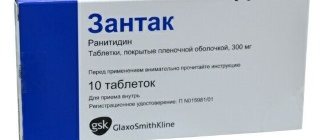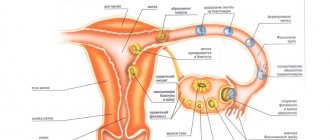Pharmacological properties of the drug Thiotriazolin
Pharmacodynamics. The pharmacological properties of thiotriazoline are due to its anti-ischemic, membrane-stabilizing, antioxidant and immunomodulatory effects. Prevents damage and death of hepatocytes, reduces the degree of fatty infiltration and the prevalence of centrilobular liver necrosis, activates the processes of reparative regeneration of hepatocytes, normalizes protein, carbohydrate, lipid and pigment metabolism in them. Accelerates the synthesis and secretion of bile, normalizes its chemical composition. Thiotriazolin increases the compensatory activation of anaerobic glycolysis, reduces the inhibition of oxidation processes in the Krebs cycle while maintaining ATP reserves. The drug activates the antioxidant system and inhibits the processes of lipid oxidation in ischemic areas of the myocardium, reduces the sensitivity of the heart muscle to catecholamines, prevents the progression of inhibition of cardiac contractility, stabilizes and reduces the size of the zone of necrosis and myocardial ischemia. Improves the rheological properties of blood by activating the fibrinolytic system. Antioxidant properties are manifested due to the presence in the structure of the thiotriazoline molecule of sulfur thiol, which has redox properties, and tertiary nitrogen, which binds excess hydrogen ions. Thiotriazoline reacts with reactive oxygen species and lipid radicals due to the pronounced reducing properties of the thiol group and prevents the initiation of reactive oxygen species by reactivating antiradical enzymes - superoxide dismutase, catalase and glutathione peroxidase. Pharmacokinetics . When taken orally, the relative bioavailability is 64.5%, the half-absorption period is 0.28 hours, the half-life is 1.3 hours, the maximum concentration in the blood plasma is observed after 1.18 hours, binding to plasma proteins does not exceed 10%. The maximum concentration in the blood plasma after intravenous administration is observed after 0.1 hour, with intramuscular administration - after 0.84 hours. The drug accumulates in a significant amount in the myocardium, tissues of the liver, spleen, kidneys and rectum, and in small amounts - in lungs and small intestine. Excreted mainly by the kidneys.
special instructions
Impact on the ability to drive vehicles and operate machinery
Compliance with the dosage regimen eliminates the risk of negative effects of the drug on the nervous system. Side effects may be accompanied by impaired consciousness and psychomotor reactions. During such manifestations, driving vehicles and complex machinery is prohibited.
Pregnancy and lactation
The metabolic agent is not suitable for use during the lactation period and pregnancy.
Use in childhood
Thiotriazolin is not prescribed to children under five years of age. The use of a metabolic agent in pediatrics is permissible only as directed by a physician.
For impaired renal function
The list of contraindications for the use of Thiotriazolin includes severe renal failure.
For liver dysfunction
Thiotriazoline is used to treat liver pathologies of various etiologies. There are no exceptions to the list of contraindications.
Conditions for dispensing from pharmacies
Presentation of a prescription is required.
Use of the drug Thiotriazolin
In case of chronic hepatitis with pronounced activity and in the acute period of myocardial infarction, in the first 5 days Thiotriazolin is administered intramuscularly, 2 ml of 2.5% solution (50 mg each) 2-3 times a day or intravenously, slowly once 4 times ml of 2.5% solution (100 mg) or drip at a rate of 20–30 drops per minute (2 ampoules of 2.5% solution are dissolved in 250 ml of isotonic sodium chloride solution). From the 5th to the 20th day of the disease, 1 tablet (100 mg) is prescribed 3 times a day. For chronic hepatitis with minimal or moderate activity, for angina pectoris and post-infarction cardiosclerosis, Thiotriazoline is administered intramuscularly, 2 ml of 1% solution 3 times a day (3 times 100–200 mg). The course of treatment is 20–30 days. For liver cirrhosis, the course of treatment is 60 days. Treatment begins with intramuscular administration of 2 ml of 2.5% solution 3 times a day for 5 days, then 1 tablet (100 mg) is prescribed 3 times a day. Orally: for liver diseases, adults are usually prescribed 1-2 tablets 3-4 times a day for 20-30 days. For angina pectoris and rest, myocardial infarction, post-infarction cardiosclerosis - 1-2 tablets 3-4 times a day for 20-30 days. For heart rhythm disturbances - 1-2 tablets orally or sublingually 3 times a day. For children, Thiotriazoline is prescribed at a rate of 10–20 mg/kg body weight per day in 3 divided doses. The duration of treatment is determined individually, depending on the severity and course of the disease.
Side effects
The majority do not experience side effects, however, in isolated cases the body may respond in the form of conditions such as:
- Bloating, nausea, and dry mouth;
- Tinnitus, general malaise, and dizziness;
- Arrhythmia, increased blood pressure, pain in the heart, tachycardia;
- Shortness of breath, as well as attacks of suffocation;
- Fever, Quincke's edema;
- Itching, as well as redness or tingling at the puncture site.
Overdose
Episodes of severe consequences of an overdose of Thiotriazoline have not been recorded in medical practice, but doctors do not exclude the occurrence of serious complications when dosages are exceeded. Children and elderly patients are at particular risk. An overdose can provoke disorders of the cardiovascular system and anaphylactic shock. If the dosage was exceeded once, then the patient must be induced to vomit. The consequences of regular overdoses are relieved by symptomatic treatment.
Other consequences of overdose:
- attack of shortness of breath and bronchospasm;
- angioedema;
- feeling of heat in the head;
- noise or ringing in the ears;
- attack of suffocation;
- excess blood pressure.
If you have taken a large number of tablets, then you need to immediately rinse your stomach using special preparations or an artificial method, take activated charcoal, carry out therapy based on the symptoms, or consult a doctor.
Contraindications
The drug Thiotriazolin is not allowed for use in the presence of such conditions as:
- Allergy to individual elements that are present in this product;
- Severe form of renal failure.
Also, the drug can be carefully prescribed to a small child. In this case, the small patient should be under the supervision of a doctor.
During pregnancy
During this period of time, you should stop taking the drug Thiotriazolin. The ban can be explained by the fact that the drug can have a negative effect on the fetus. While breastfeeding the baby, the mother should also stop taking this medication. The fact is that Thiotriazolin can pass into mother's milk, harming the baby.
If it is impossible to postpone taking the medicine, then natural feeding should be stopped and the child switched to formula.
Reviews
This product has a small number of reviews. However, from those that are available, we can conclude that both forms of the drug Thiotriazolin are quite effective. Patients note an improvement in their condition within an hour after taking the drug.
The drug is not exactly cheap and many patients focus on this, because This factor greatly spoils the impression of the product.
Did you know that the most common diseases of the 21st century are liver problems? More details:
- How to recognize the first signs of hepatitis and effectively cope with the disease?
- An interesting article about liver cirrhosis, you will learn about the history of the disease and its prevalence in the world.
- Pain or discomfort in the right hypochondrium? Perhaps it's hepatosis! How can it be cured?
Similar drugs:
- Neurotropin (neurotrophin) Solution for injection
- Deprenorm MV Oral tablets
- Angiozil retard Tablets
- Thiotriazoline Oral tablets
- Sodium fumarate compound Solution for infusion
** The Drug Directory is intended for informational purposes only. For more complete information, please refer to the manufacturer's instructions. Do not self-medicate; Before starting to use the drug Thiotriazolin, you should consult a doctor. EUROLAB is not responsible for the consequences caused by the use of information posted on the portal. Any information on the site does not replace medical advice and cannot serve as a guarantee of the positive effect of the drug.
Are you interested in the drug Thiotriazolin? Do you want to know more detailed information or do you need a doctor's examination? Or do you need an inspection? You can make an appointment with a doctor - the Euro lab is always at your service! The best doctors will examine you, advise you, provide the necessary assistance and make a diagnosis. You can also call a doctor at home . Euro lab clinic is open for you around the clock.
** Attention! The information presented in this medication guide is intended for medical professionals and should not be used as a basis for self-medication. The description of the drug Thiotriazolin is provided for informational purposes and is not intended for prescribing treatment without the participation of a doctor. Patients need to consult a specialist!
If you are interested in any other drugs and medications, their descriptions and instructions for use, information about the composition and form of release, indications for use and side effects, methods of use, prices and reviews of drugs, or you have any other questions and suggestions - write to us, we will definitely try to help you.
Price
It is worth considering that the price is formed based on transportation costs, as well as the region of sale. That is why in Ukraine and Russia the price will be significantly different. The instructions show the average price taken for the cities of Moscow and Kyiv.
Cost in Russia
- In Moscow, you will have to pay an average of 640 rubles for Thiotriazolin tablets;
- You will have to pay 830 rubles for the solution.
Cost in Ukraine
- In Kyiv, you will have to pay an average of 215 hryvnia for tablets of the drug Thiotriazolin;
- The price for the solution ranges from 145 to 250 hryvnia.
Video on the topic: Chronic hepatitis
Analogs
The drug Thiotriazolin does not have direct replacement drugs, however, you can choose a drug with a similar mechanism of action. These medications include:
Antraliv, Hepafor, Berlition, Ursodez, Phosphogliv, Livodexa, Karsil, Dipan, Rezalut Pro, Octolipen, Ursosan, Tykveol, Essliver forte, Exhol, Silegon, Methionine, Hepa Merz, Vitanorm, Liv 52, Thiolipon, Ursorom, Ursodex, Ursoliv, Ursofalk, Essliver, Hepatral, Ornitsetil, Metrop, as well as Ursodeoxycholic acid.
Among the analogues presented, you can choose a cheap drug, however, this issue should only be dealt with by a specialist.
Composition and release form
Thiotriazolin is a metabolic medicine that is used in the complex treatment of cardiovascular pathologies, as well as diseases of the hepatobiliary system, eyeball, rectum and female genital organs. ATX code – C01EB23.
The medicine is available in four forms, namely:
- injection solution;
- pills;
- eye drops;
- rectal and vaginal suppositories.
Next we will talk about injectable Thiotriazolin.
The active component of Thiotriazolin is the salt of thinitric acid. One milliliter of solution contains 0.025 grams of active substance. Injection water was used as a solvent.
Thiotriazolin solution is a colorless liquid with a yellow tint, which is available in glass ampoules of 2 and 4 ml. Containers with the drug are packed in cardboard packages of 5 or 10 pieces.
Indications and contraindications for use
Thiotriazoline is widely used as an auxiliary drug for the following diseases of internal organs:
- acute coronary syndrome;
- angina pectoris;
- cardiosclerosis after myocardial infarction;
- heart rhythm disturbances;
- myocarditis;
- cardiomyopathy;
- chronic heart failure;
- myocardial dystrophy;
- acute and chronic hepatitis;
- cirrhosis of the liver.
The drug can also be used as part of pathogenetic therapy when treating with drugs that have a high degree of hepatotoxicity, for example, antimalarial, antituberculosis, cytostatic and antibacterial agents.
Despite its wide range of applications, Thiotriazoline cannot always be prescribed to patients. The following conditions are contraindications to this drug:
- a history of individual intolerance to the drug and its individual components;
- renal failure;
- pregnancy period;
- breast-feeding;
- age under 18 years.




